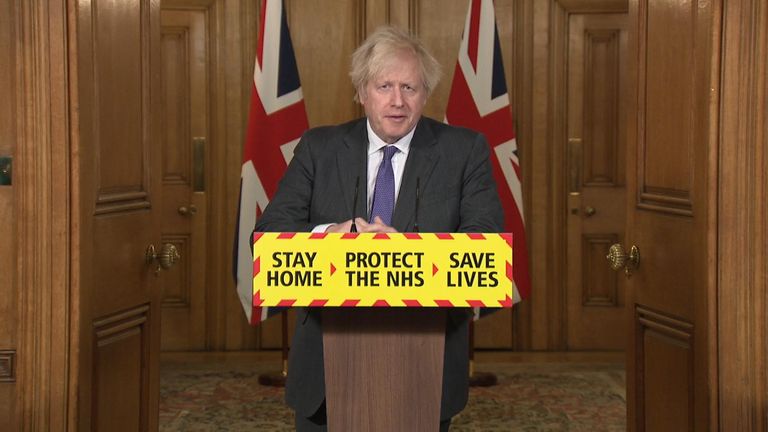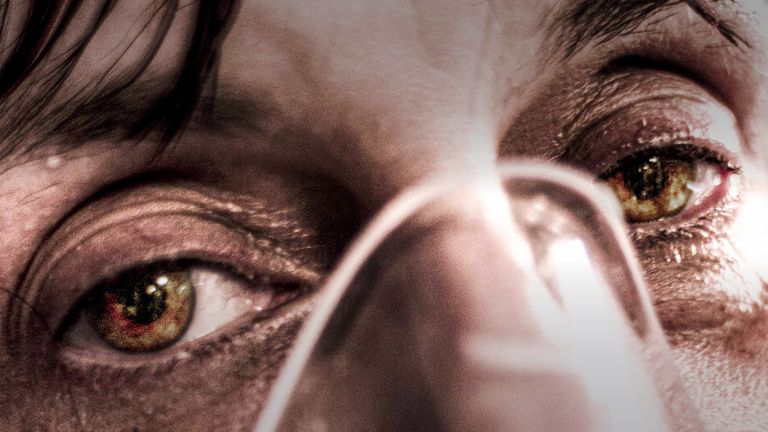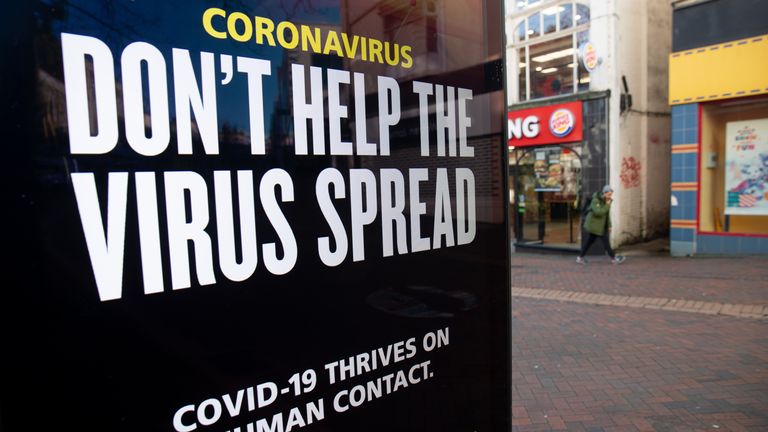COVID-19: UK coronavirus variant may be more deadly than original virus but vaccines combat it, PM says
While the UK variant may be more deadly, the prime minister says "all evidence" shows current vaccines are effective against it.
Saturday 23 January 2021 03:55, UK
The COVID-19 variant that was first identified in the UK may be more deadly than the original virus, the prime minister has warned.
At the Downing Street news conference on Friday, Boris Johnson said: "There is some evidence that the new variant may be associated with a higher degree of mortality."
Mr Johnson added: "All current evidence continues to show that the current vaccines remain effective against the old coronavirus variant and this new one."
Live COVID news from UK and around the world
Sir Patrick Vallance, the government's chief scientific adviser, said with the initial variant, out of 1,000 people over 60 infected with it, 10 would die.
With the UK variant, the available data suggests that 13 or 14 people out of 1,000 from the same age group would be expected to die, he added.
However, he said there was less certainty about the vaccines' efficacy against variants which had appeared in other countries such as South Africa and Brazil.
"We are more concerned that they have certain features that they might be less susceptible to vaccines," he said.
Forty-four people in the UK have the South African variant of coronavirus, according to figures from Public Health England, with a maximum estimate of 71 people infected.
And the prime minister admitted further action may be necessary to protect the country's borders to prevent new variants from entering.
"I really don't rule it out, we may need to take further measures still. We may need to go further to protect our borders.
"We don't want to put that [all the effort to control the virus] at risk by having a new variant come back in."
First identified in Kent, the UK variant is thought to be more than 70% more transmissible.
England and Scotland announced new restrictions on 4 January to stem the surge in coronavirus, which has led to record numbers of daily deaths and infections this month.
Latest estimates from the Department of Health (DoH) suggest the number of new COVID-19 infections was shrinking by between 1% and 4% a day.
However, England's chief medical officer professor, Chris Whitty, said, while this was true, the coronavirus situation in the UK remained "extremely precarious".
"In terms of the infection rate, if you took the country as a whole and just averaged it, then the number of infections is broadly going down but it is at a very high level, and it is extremely precarious - I really want to stress this.
"A very small change and it could start taking off again from an extremely high base, and there are some areas of the country and some age groups in which it does not appear to be going down - for example in people (aged) 20-30, the evidence is that it may still be increasing in some parts of the country.
"It is not solidly going down and it is very, very high."
Prof Whitty said the peak of deaths "may well be still in the future", before warning: "If people took this moment and said, 'right, it is over', it would get back into very deep trouble very fast and the NHS is absolutely at the top of what it can manage.
"If that happened again, we would be in really, really deep trouble."
This was a message backed up by the prime minister who said: "We really can't begin to consider unlocking until we're confident that the vaccination programme is working, until we're confident that we don't have new variants or changes in our understanding of the virus.
"I think the most important thing is we've got to be in a position where the rate of infection of the virus is not still so high, and it's very high right now.
"So, for unlocking just to lead to another big rebound, I think that would be the wrong thing, the wrong way, to approach this."






